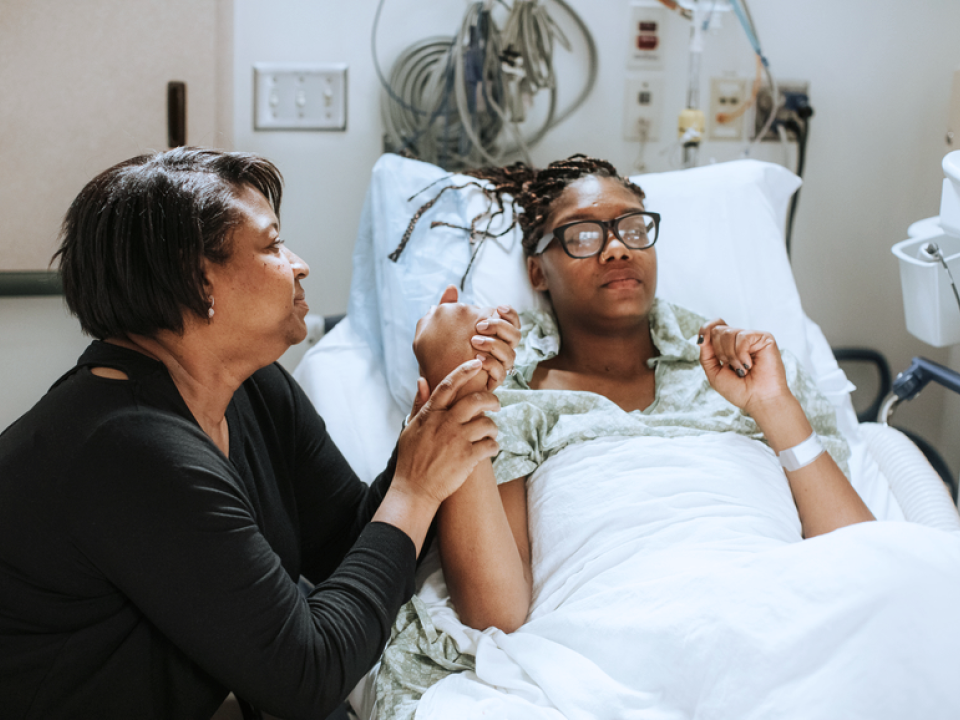Over 45? New Rules Say It’s Time to Screen for Colon Cancer

In the past year, many of us delayed healthcare as a result of the pandemic. While you’re likely starting to reschedule routine appointments, there’s one screening you might not be so eager to add to the calendar: a colonoscopy.
We get it. Cleansing one’s colon isn’t exactly what we had in mind for a fun post-lockdown activity either.
Still, colonoscopies and other screenings are essential tools in preventing and catching colorectal cancer, the third leading cause of cancer death for men and women in the U.S.
And in May 2021, the U.S. Preventive Services Task Force released recommendations that all adults 45 and older be screened for colorectal cancer, instead of waiting until age 50.
For people with Affordable Care Act approved health plans, this means your colonoscopy is covered by insurance.
In other words, it’s time to pencil in that appointment.
Younger adults can get colorectal cancer
While you may think of colorectal cancer as a disease that only affects older adults, the reality is more than 10% of new colorectal cancer cases occur in people younger than 50.
“I have certainly seen young people with colon cancer in my practice, and it’s shocking to everyone involved,” says Dr. Rachel Issaka, a gastroenterologist who sees patients at the Digestive Health Center at UW Medical Center – Montlake and Seattle Cancer Care Alliance at South Lake Union.
Telltale signs of colorectal cancer include abdominal pain, unexplained weight loss, bloody stool, vomiting, tiredness and a change in bowel movements (such as diarrhea or constipation) that occur for an extended period of time.
One reason cases of colorectal cancer might be increasing in younger adults is even if they show signs of colorectal cancer, they often delay seeking care or are even dismissed by care providers because of their age, Issaka notes.
If you do notice unexplained abdominal pain, bloody stools, or a change in bowel movements, tell your doctor about these symptoms — even if doing so feels awkward.
Don’t be afraid to advocate for screening options like at-home tests or a colonoscopy. It’s your health, and it’s important.
Black people are at higher risk of colorectal cancer
One huge benefit of the Task Force guidelines is they will help Black people and other high-risk individuals access screening at an earlier age.
In the U.S., Black people of all ages are 20% more likely to be diagnosed with colorectal cancer and 40% more likely to die from it than most other racial and ethnic groups. This is due to healthcare disparities that make it harder for Black people to access healthcare, as well as other disparities that increase risk factors like a lack of access to healthy and affordable food or safe housing.
“One of the major gastroenterology societies for many years recommended that Black people begin colon cancer screening at 45 because Black people are at highest risk of getting colon cancer and are more likely to die from colon cancer than any other racial group in the United States,” Issaka says.
While there has long been a need for screenings at younger ages, these screenings haven’t been accessible to everyone because they haven’t been covered by insurance. Now, with the updated guidelines, people 45 and older who have insurance will be able to receive this care without having to worry about how to pay for it.
“I'm excited for Black people and other high-risk populations who needed earlier screening to have this important test covered,” Issaka says.
What to expect during a colonoscopy — and how to make prep easier
A colonoscopy is a procedure that helps doctors find and remove any polyps, or abnormal tissue, in your colon and rectum before it can become cancerous.
Your doctor will insert a long, flexible tube with a camera on it into your rectum and then up to your colon. If they find any abnormal tissue, they will remove it and send it to the lab for testing.
All said and done, the entire procedure takes 30 to 60 minutes, and you will be sedated for the duration, so you won’t experience any pain. You might feel a little bloated afterward, but this should wear off in a couple hours.
You will, however, need to clear out your bowel ahead of the procedure. This means switching to a liquid diet for a day in advance, taking a laxative and dealing with the resulting diarrhea.
With all the quality toilet-time, it’s understandable if you’re less than excited about the earlier colonoscopy recommendation. Just remember that the prep is the worst part and there are lots of ways to make it less unpleasant, from drinking the laxative cold to stocking up on wet wipes.
Diarrhea-free, at-home colorectal cancer screening options
If you don’t have a family history of colorectal cancer or any symptoms, you might be able to skip the colonoscopy and screen via a stool sample instead.
At-home screening options include a stool blood test, called a fecal immunochemical test (FIT), and a stool DNA test, called a FIT-DNA test. In both cases, you will collect a stool sample at home and send it into a lab for screening.
These tests spare you the uncomfortable prep and allow more people to be screened without competing with high-risk individuals for a limited number of colonoscopy appointments — a fact that is especially important in light of the new guidelines, which make an additional 20 to 22 million people eligible for screening.
“We’ll have to figure out a way to balance screening these newly eligible individuals while not taking resources away from those who are over 50 and at the highest risk," Issaka notes. "Health systems and individuals involved in screening will have to pay particular attention to not worsen the existing disparities.”
That said, if your results do come back with any abnormalities, you will need to get a colonoscopy for more in-depth examination and to remove any polyps.
The bottom line (pun intended)
Whether you do at-home screening or a colonoscopy, testing for colorectal cancer at a younger age makes a huge difference.
When colon cancer is caught in early stages, 91% of people are alive five years after their diagnosis, compared to late-stage diagnoses, where only 14% of people are alive five years after their diagnosis.
In other words, colonoscopies and other screening tests can save your life.
So, prep or no prep, sign us up.
Barbara Clements, UW Medicine Newsroom, contributed to this article

 Healthy ideas for your inbox
Healthy ideas for your inbox





